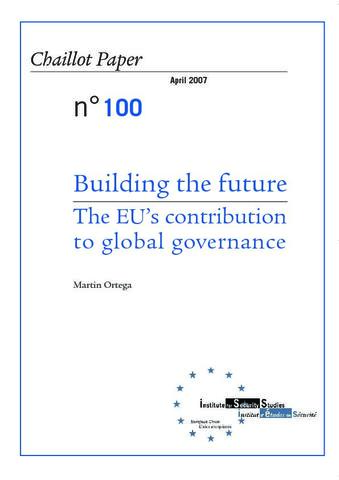You are here
Building the future: the EU’s contribution to global governance

To a large extent, the world to come depends on us. Political communities can respond to warnings and visions regarding their futures and organise themselves in order to shape and ‘improve’ those futures. The European integration process is a good example of a change of historical direction, marking a watershed between a past marred by devastating wars and a present characterised by common institutions and rules. This Chaillot Paper suggests that the next frontier in the future’s improvement process is global governance. Global challenges and opportunities call for concerted action. Individual states, including major - both old and emerging - powers cannot tackle challenges and exploit opportunities on their own. Therefore, new global agreements are needed to shape the future with a view to ensuring peaceful coexistence and avoiding widespread conflict and destruction. This paper foresees that a global ‘constitutional moment’ may appear at the beginning of the 2010s. Numerous issues will have to be addressed at this juncture: UN Security Council reform, peace and institution building in the Middle East region, reinforcement of peacekeeping capabilities, fossil fuel consumption, climate change and the spectre of extreme poverty in Africa. The European Union and its member states are well placed to contribute to future efforts conducive to global governance. However, a significant European contribution will require a more cohesive EU foreign policy. At a time when the EU’s future role as a global player is being defined, European governments should bear in mind that more and more European citizens are demanding a firmer commitment to international principles and values.